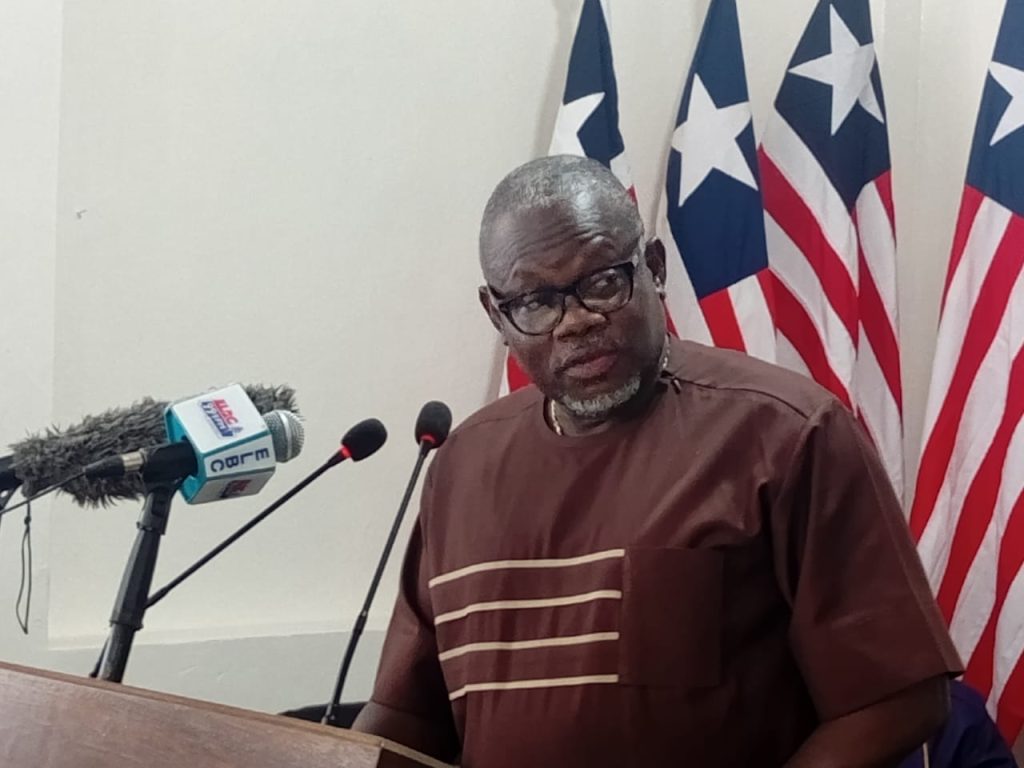Liberia’s Minister of Information, Cultural Affairs, and Tourism, Ledgerhood Rennie, delivered a pointed critique of the nation’s media landscape during the 32nd World Press Freedom Day commemoration. He argued that the core weakness of Liberian media stems from the apathy displayed by media owners and executives towards the Press Union of Liberia (PUL), the professional organization representing journalists. Rennie asserted that these key figures only engage with the PUL during election cycles, utilizing the media for their own political purposes while neglecting the long-term development and strengthening of the press. This sporadic engagement, he contended, significantly undermines the media’s ability to function effectively and independently.
Rennie’s criticism centered on the lack of sustained support and involvement from media owners in the affairs of the PUL. He argued that these owners, often businesspeople with vested interests beyond journalism, treat the media as a tool rather than a vital pillar of democracy. This detached approach, leaving the burden of upholding journalistic standards and advocating for press freedom on young journalists and the PUL leadership, has resulted in a weakened media landscape, vulnerable to political manipulation and lacking the necessary resources to perform its critical role in society. He urged media owners to become actively involved in the profession, not just as proprietors, but as stakeholders invested in the growth and integrity of the press.
The Minister’s call for greater engagement was framed within a broader appeal for media owners to adopt a more journalistic ethos. He argued that ownership should entail more than just financial investment; it should also encompass a commitment to the principles of ethical journalism and a willingness to actively contribute to the betterment of the profession. He emphasized the importance of continuous engagement with the PUL, advocating for a year-round commitment rather than a cyclical, election-driven approach. By becoming genuine stakeholders in the media landscape, owners could help elevate the standards of journalism in Liberia and strengthen its resilience against external pressures.
Despite his critical assessment, Rennie also acknowledged the government’s commitment to fostering a free and independent press. He emphasized the current administration’s efforts to create an environment where journalists can operate without fear of intimidation or censorship. This commitment, he explained, stemmed from the recognition that a free and independent media is an essential component of a thriving democracy. He highlighted the government’s efforts to create legal and regulatory frameworks that protect journalists and ensure their ability to report freely and hold power accountable. He acknowledged that while the current state of the Liberian media is concerning, the government is taking concrete steps to nurture a more robust and independent media landscape.
The Minister’s remarks underscored the complex interplay between government, media owners, and journalists in shaping the media landscape. While acknowledging the government’s role in ensuring press freedom, he emphasized the responsibility of media owners to invest in the long-term sustainability and professionalism of their outlets. He called for a collaborative approach, where government, media owners, and journalists work together to strengthen the media and ensure its ability to serve as a vital check on power and a platform for informing the public. This collaboration, he argued, is essential for building a truly democratic society where the press can play its crucial role effectively.
The Minister’s comments resonated with the ongoing challenges faced by Liberian journalists, including limited resources, inadequate training, and precarious working conditions. His critique of media owners reflects a wider concern about the commercialization of the media and its potential impact on journalistic integrity. By highlighting the crucial role of media owners in supporting the PUL and investing in the professional development of journalists, Rennie aimed to spark a dialogue about the shared responsibility for building a stronger, more independent, and sustainable media in Liberia. His remarks serve as a reminder that a free press requires not only legal protection but also a commitment from all stakeholders to invest in its growth and safeguard its integrity.














